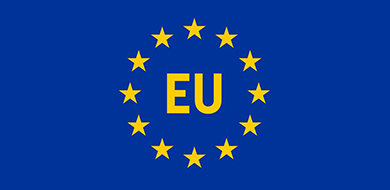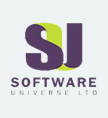Digital Economy

Context
With businesses increasingly going digital, the digital economy is an area governments are taking a keen eye to make sure these businesses comply to laws and regulations set out by the respective country to trade within its jurisdiction. An insight on how digital businesses operate, how other countries have adapted to the growth of the digital economy and how the local tax base can be expanded by collecting tax from businesses that do not have a physical presence in the country but have access to customers based in the jurisdiction of Tanzania via the internet.

Problem Statement
As more businesses go digital it becomes harder and harder to maintain a level of control and supervision by the government, especially when it comes to collecting tax on businesses that do not have a physical presence in the country. Businesses that operate digitally or online can easily have access to customers in the countries jurisdiction without having to worry about the local revenue authority knocking on their doors unlike businesses that have a physical presence in the country. In this case digital/online businesses are not subjected to paying fair and required tax to the government for conducting business with the people within the jurisdiction of the country. Local businesses that pay tax to the government also face unfair competition from digital businesses that do not adhere and comply to the country’s tax laws.

What Is It?
The world is continuously changing, one of the fundamental drivers of this change is digital transformation. Digital transformation is about using the latest technology to do what you already do but better. The global economy is undergoing a digital transformation as well, and it’s happening at high speed. Digital economy is the economic activity that results from billions of everyday online connections among people, businesses, devices, data, and processes. The backbone of the digital economy is hyper connectivity which means growing interconnectedness of people, organisations & machines that results from the Internet and mobile technology. The digital economy is taking shape and undermining conventional notions about how businesses are structured, how firms interact, how consumers obtain services, information and goods.

Online Vs Bricks & Motor Business
As more businesses go digital it becomes harder and harder to maintain a level of control and supervision by the government, especially when it comes to collecting tax on businesses that do not have a physical presence in the country. Businesses that operate digitally or online can easily have access to customers in the countries jurisdiction without having to worry about the local revenue authority knocking on their doors unlike businesses that have a physical presence in the country. In this case digital/online businesses are not subjected to paying fair and required tax to the government for conducting business with the people within the jurisdiction of the country. Local businesses that pay tax to the government also face unfair competition from digital businesses that do not adhere and comply to the country’s tax laws.
| Statistics on digital economy: | ||
| Global digital economy worth | $ 3,000,000,000.00 | |
| World online population | 3,200,000 | |
| Tanzanian’s with internet access (as of 2019) | 2,300 | |
| Tanzanian’s on Facebook | 6,100 | |
Approaches and Experience
from other countries

Angola
Angola has a 14% VAT for all sales. There is no registration threshold for foreign providers of digital services, so you must register for VAT as soon as you have a single Angolan customer. To register for Angola VAT as a non-resident digital service provider, you must appoint a local tax representative. The country will eventually offer a simplified registration system on its website. For B2B sales, there’s the option of using the reverse-charge mechanism

South Africa
South Africa introduced their VAT rules for electronic suppliers on 1st July 2014. They do have a lower limit however; below which VAT is not required to be charged or registered for. That is ZAR 1,000,000. Unlike other countries, South Africa does not make a distinction between B2C and B2B sales all are subject to their 14% VAT charge. Pretty much any kind of digital service you can think of is in-scope for their electronic VAT rules. Another point to note is that the South African VAT act is not limited to South African residents. Therefore, your digital business based out of any other country could well be on the hook for VAT there if you meet the thresholds.

Albania
Albania introduced their VAT rules for digital business on 1st January 2015. The standard VAT in Albania is 20% and there is no registration threshold. It means that non-resident businesses, who make a single sale to Albanians consumers, must collect and register for VAT in Albania by a local tax agent for it. Like other countries, there are no registration obligations for supplies made to VAT-registered customers in Albania so they have to self-charge VAT (i.e. reverse- charge mechanism), however, Albania has not introduced any online tool to automatically verify the VAT status of the customer online in real-time so it is very difficult for foreign companies to confirm that their customers are B2B or B2C

China
The Chinese tax authority is working on reforming of its VAT system and they continue investigating how to tax the digital economy. At least for now, China postpones the full implementation of the new VAT regime for products purchased by consumers in the online marketplaces.

Australia
Australia has a 10% GST on sales of low value goods to its consumers by non-resident e-Commerce companies. This includes, digital products such as streaming or downloading of movies, music, apps, games and e-books and services such as architectural or legal services. If you meet the registration turnover threshold of A$75,000 and make these supplies, you will be required to register for GST.

European Union
Digital businesses who sell to European consumers must apply, collect, and remit VAT against all customer invoices. If you sell to VAT-registered businesses, they are exempt under a reverse-charge scheme, but you must have their VAT registration details. There is no “EU” VAT rate. The rate you need to charge is the rate of the country in which your customer resides. This means you need to be set up to apply the correct VAT rate to the right country. If collecting and paying out VAT to each individual jurisdiction sounds like a headache, you can get set up with a MOSS (mini one-stop shop) to administer your VAT returns and distribute what you have collected.
How can we help you?
Get in touch with us or find an office closest to you.





Pulsans
Our mission is simple providing high quality, relevant and compelling services that customers can only get from Pulsans Technology Limited www.pulsans.com
Quick Links
Get In Touch
- Call : + 255 752 444 458
- Email : info@pulsans.com
- P.O Box : 76852
- Web : www.pulsans.com
